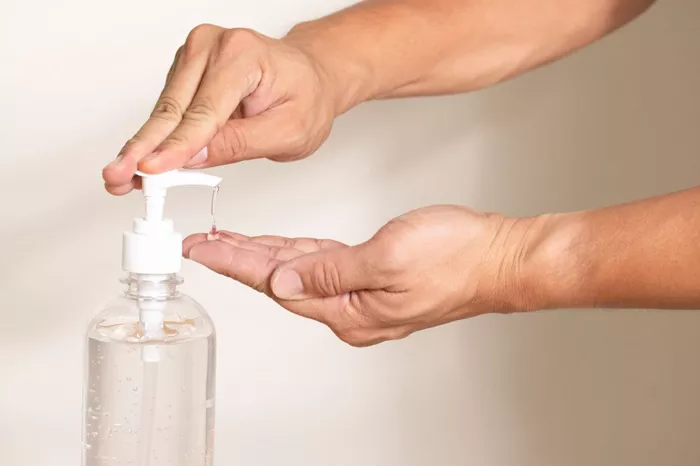Obsessive-Compulsive Disorder (OCD) is a chronic mental health condition that affects millions worldwide. Characterized by uncontrollable, reoccurring thoughts (obsessions) and behaviors (compulsions) that the sufferer feels the urge to repeat over and over, OCD can manifest in various forms. One of the lesser-discussed but significantly impactful manifestations is what is commonly referred to as “OCD hands.” This term is often used to describe the physical damage that can occur to the hands of individuals with OCD, particularly those who compulsively wash or sanitize their hands to alleviate contamination fears. This article explores the steps and treatments necessary to heal and protect the hands from the rigorous effects of these compulsions.
Understanding OCD Hands
OCD hands typically result from repetitive behaviors such as excessive hand-washing or the use of harsh cleaning chemicals, which can lead to dermatitis, dryness, cracking, and bleeding. These physical symptoms not only cause discomfort but can also exacerbate the mental stress associated with OCD, creating a vicious cycle of mental distress and physical pain.
Medical and Psychological Impact of OCD on Hand Health
The constant cycle of obsessive washing and the resultant physical damage can significantly impact a person’s quality of life. Physically, the skin on the hands becomes damaged, and in severe cases, may be susceptible to infections. Psychologically, the fear of contamination and the compulsion to wash can become so dominating that it interferes with daily functioning.
Breaking the Cycle: Treating OCD Medically
Professional Diagnosis and Therapy
The first step in addressing OCD hands is to obtain an accurate diagnosis from a qualified mental health professional. This usually involves a detailed discussion of symptoms, their frequency, and the impact on daily life. Treatment often involves a combination of psychotherapy and medication.
Cognitive Behavioral Therapy (CBT): CBT is one of the most effective treatments for OCD. It involves exposure and response prevention (ERP), which helps individuals gradually face their fears and reduce their compulsive behaviors.
Medication: Antidepressants, particularly those known as Selective Serotonin Reuptake Inhibitors (SSRIs), are commonly prescribed to help manage OCD symptoms. These can help reduce the compulsion to wash hands excessively.
Integrating Treatment Approaches
Combining medication with therapy can provide a comprehensive approach, addressing both the psychological triggers of OCD and the physical compulsions.
Practical Measures for Healing Hands
Alongside professional medical treatment, several practical measures can be taken to heal and protect the hands.
Skin Care Regimen
Developing a gentle and effective skin care routine is crucial for individuals suffering from OCD hands.
Use Mild Soap: Opt for soap that is free from fragrances and irritants. Soap with added moisturizers or those labeled as hypoallergenic can be particularly beneficial.
Moisturize Regularly: Apply a thick, emollient moisturizer immediately after washing hands. Ointments like petroleum jelly or those designed for eczema can provide a protective barrier and help heal the skin.
Wear Gloves: When doing household chores that involve water or cleaning agents, wearing gloves can help protect the skin from further damage.
Lifestyle Adjustments
Making small changes in daily habits can significantly impact the health of one’s hands and overall well-being.
Hydration: Staying hydrated helps maintain skin elasticity and prevents dryness.
Diet: A diet rich in vitamins A, C, and E can support skin health. Foods such as carrots, citrus fruits, nuts, and green leafy vegetables are beneficial.
Stress Management: Since stress can exacerbate OCD symptoms, incorporating stress-reduction techniques like yoga, meditation, or deep-breathing exercises can be beneficial.
Support Systems and Coping Strategies
Building a Support Network
Engaging with support groups, either online or in person, can provide encouragement and advice from others who understand the challenges of living with OCD. Family and friends should also be informed about the condition to provide necessary support.
Educational Resources
Understanding OCD is essential for both sufferers and their loved ones. Numerous resources are available through mental health organizations and websites that offer tips for managing symptoms and preventing relapses.
Creating an Action Plan
Having a plan in place for managing intense urges to wash or clean can help prevent damage to the hands. This might include activities that are relaxing or require attention, which can serve as distractions during urges.
Long-Term Management of OCD Hands
Routine Follow-Up with Healthcare Providers
Regular appointments with a dermatologist and mental health professional are crucial to monitor the progress of both skin condition and mental health. Adjustments to treatments or routines can be made based on these observations.
Continuity in Therapy
Ongoing therapy, whether in the form of CBT, other psychotherapeutic approaches, or maintenance medication, is often necessary to manage OCD effectively. Continuity in therapy helps in adapting coping mechanisms to various life changes or stressors.
Conclusion: A Holistic Approach to Healing OCD Hands
Healing OCD hands requires a combination of professional medical treatment, practical skin care measures, and supportive psychological strategies. A multidisciplinary approach involving dermatologists, psychiatrists, and therapists, along with the support from loved ones, can make a substantial difference in the lives of those affected. By addressing both the mental and physical aspects of the condition, individuals can achieve better control over their symptoms, improve the health of their hands, and enhance their overall quality of life.
[inline_related_posts title=”You Might Be Interested In” title_align=”left” style=”list” number=”6″ align=”none” ids=”8423,8420,8417″ by=”categories” orderby=”rand” order=”DESC” hide_thumb=”no” thumb_right=”no” views=”no” date=”yes” grid_columns=”2″ post_type=”” tax=””]

































